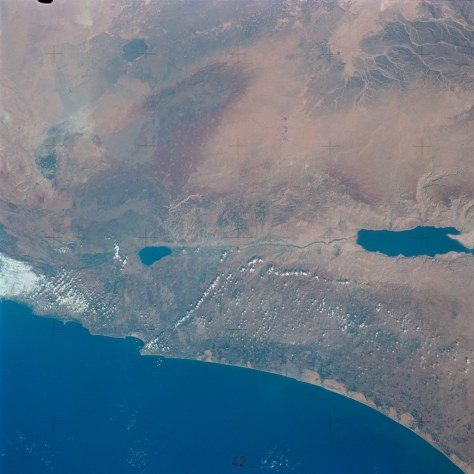Prophetic Geographic History (Vezot Habracha)
I have seen gleams in the face and eyes of the man that have let you look into a higher country. -Thomas Carlyle
Moments before Moses is about to leave the mortal realm, God has him climb Mount Nevo and gaze upon the Promised Land. God shows Moses the length and breadth of the land in intricate detail:
“And God showed him the whole land: Gilead as far as Dan; all Naphtali; the land of Ephraim and Menashe; the whole land of Judah as far as the Last (Western) Sea; the Negeb; and the Plain—the Valley of Jericho, the city of palm trees—as far as Zoar.”
The Bechor Shor on Deuteronomy 34:3 explains that there’s prophetic significance to each of the geographic markers God points out to Moses. In fact, each marker represents a future leader of the nation of Israel that God shows to Moses.
The most obvious site is that of Jericho. It is the first city that Moses’ disciple Joshua will conquer and it is the key battle that opens up the conquest of the rest of Canaan.
Naphtali refers to Deborah and Barak who decades later led the successful rebellion against the tyrannical Yavin and his general Sisera.
Menashe refers to the Judges, Gideon and Yiftah, who defeated their respective enemies.
Dan refers to Samson, the miraculously strong warrior who proved a major antagonist to the enemy Philistines.
Judah refers to Kings David and Solomon and their descendants.
Ephraim refers to the Kings of Israel, descendants of Ephraim, starting with Yeravam, who broke off from the Davidic dynasty and the Kingdom of Judah after Solomon’s death.
“The Last Sea” refers to the Messianic days until the end of time.
God doesn’t just show Moses the physical land that He promised to the Children of Israel. He shows Moses the future history of Israel as well. He shows him their leaders, their battles, their victories and defeats, their kings and prophets, all of our history, including our present-day and beyond, until the very end of history.
Moses may not have merited to enter the land, but he got to see more than most mortals ever have.
May we continue to merit visions of prophecies unfolding before our eyes.
Shabbat Shalom and Chag Sameach,
Ben-Tzion
Dedication
To the beginning of the Shmita (Sabbatical) agricultural year.



















